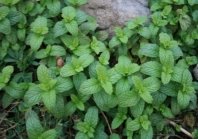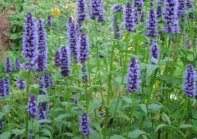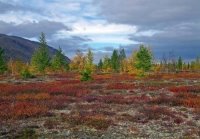This article reflects the methodological views of primary school students on improving their thinking skills and functional literacy through the text.
Keywords: mother tongue, thinking, reading literacy, language skills, text, methodology, related speech, assignment, conscious reading comprehension, comprehension, mastery.
We all know that in the years of independence, the purpose of teaching the native language is to cultivate creative thinking, independent thinking, to express their thoughts in written and oral forms in accordance with the conditions of speech. 'was aimed at shaping their skills [1]. In order to achieve this goal, of course, certain methods and tools were chosen, which began to perform a complex task, such as teaching the student the grammatical side of the Uzbek language, rather than the goal we mentioned above. As a result, our graduates have difficulty expressing their opinions on a topic, participating in discussions, understanding and mastering the given texts. In overcoming these and similar problems, it is important to combine the content of mother tongue education with its purpose.
Main body
Today, the education system of Uzbekistan has developed a national curriculum for all general education subjects, based on national methods and world experience. One of the highlights of the program is the focus on exercises and assignments that focus on «reading, listening to, and analyzing whole texts that contain interesting information in different styles or pieces of fiction that express holistic content, and comparing texts written in two different styles on the same topic». [2]
There are a number of ideas and suggestions for the four skills that need to be developed in mother tongue education today: oral, written, reading, and listening comprehension. In particular, in the world experience there is a broad concept of ¹«functional literacy» , which combines these skills, and one of the most important aspects in the formation of this ability is the ability of the student to read, understand, think logically, become a creative thinker are listed [3].
O. V. Nazarenko has the following opinion that functional literacy, which we mentioned above, is a skill that develops in each student over the years and can be further improved by performing exercises and tasks related to the development of reading literacy: The concept of «thinking» o 'refers to the activity of the reader in such a way that the reader uses his own personal opinion and experience in this regard to understand the author's opinion. Practical assignments aimed at the formation and development of reading literacy help to develop the skills of correct thinking and analysis» [4]
In this article, Dr. X. S. Bakiyeva, Ph.D. in Pedagogy, discusses the issue that we want to focus on. Ignoring their methods is one of the painful points of achieving harmony between language and thought» [5].
In practice, the mother tongue exercises we use in the native language classes of the primary grades and the texts given for these exercises are aimed at identifying and interpreting the most requested language phenomenon, making the student's oral and written speech literate. Little attention has been paid to the formation, as well as to the preparation for the process of interacting with the external environment and society through mother tongue education.
Therefore, the exercises and assignments prepared for native language lessons should be chosen so that the student can work with more different styles of texts, understand the practical significance of the language phenomenon being studied, increase the level of logical thinking and use language tools in the future. To develop the ability to master the sciences, to connect this knowledge with everyday life.
So, in this article, we'll share some tips for using reading and comprehension exercises and assignments.
Zovboshi
We spent our summer vocation in Zovboshi, where Ergash’s father was a shepherd. (Zov means a steep rock, a high cliff or a deep ravine). I have traveled through many ravines in the mountains, but I have never seen such a wonderful place as Zovboshi.
Life in the village begins early in the morning. Someone milks goats, sheep, and cows and adds them to the herd, someone brings water from a spring, and someone goes to the fire. There is a fire in the oven, milk is boiled, tea is boiled — everyone is busy. Aiming to become a soldier, Ergash does morning exercises. As soon as we wake up, we run on a path that leads to a high hill. The necklace also follows us. The shrubs growing on the edges of the trail attract my attention. Many mountain flowers wither with decreasing rainfall. But the shirachs bloom and open all summer long. The dark flowers, soaked in the morning dew, seem to shine brightly. The star-shaped flowers gradually open from the bottom to the top of the inflorescence. This situation lasts for months. Shirach deserves to be called a real mountain flower.
After running we do gymnastic exercises. We wash our faces and hands in the waterfall flowing from the heights. The waterfall hits the rocks and turns into tiny drops. There is a pleasant smell of mint (wild mint) growing on the water's edge.
«Children, have a good breakfast, you have a lot of work to do today, there is not enough firewood. As Elbek goes to the fire, you will go and bring firewood together», said Aunt Zubayda, Ergash's mother. Uncle Gaffor, Ergash's father, says:
— The majesty and beauty of Zovboshi is due to the stability of the spruce tree. Do not cut wet spruce again. Elbek knows where there is dry firewood and twigs and takes them with him. Fill flasks (small metal containers with tarpaulins with mouths closed) with water, do not drink water from rivers and streams.
So, under the leadership of Elbek, Ergash, I — the three of us, went on fire on three donkeys.
On the way I looked in amazement at the coniferous plant that grew on the ground.
— This plant is called spruce grass, it is about half a meter tall, it is resistant to wind due to its thick growth, it is not damaged by rocks falling from the mountains, on the contrary, it catches them. Neither the mountains nor the soil are strong because of the tall spruce trees, but because of the spruce grass, «Elbek explained along the way.
Finally, we came to a ravine with high cliffs on both sides, the upper end of which was connected to the snow-capped peaks. A stream flowed through the middle of the valley. In addition to the giant spruce trees, various trees and shrubs grew thicker and thicker. Some of the trees and shrubs had dried up and could be easily cut down — the firewood was innumerable. No sheep or goats were seen grazing in the valley.
— This place is called Chaqmaqidara. The reason for this is that there are many lightning strikes, and even in summer there are sudden black clouds, thunderstorms and strong floods in the river. Many times the flood washed away the cattle. That is why shepherds do not graze in the valley. Don't be afraid, there are no clouds over the gorge, there will be no lightning today, — said Elbek, feeling our surprise.
Soon we were laying on the dry branches and looking at the pine tree in the lower ravine. Ergash, who was leading, suddenly stopped and called us:
— Come here, look, someone cut the blue spruce and prepared it: — We counted the cut spruce — more than ten. Who is the ruthless man who cut down such beautiful spruces?
— We will control these timbers. They are designed to be carried on a donkey. They will come to pick you up soon. We will hand it over to the forest ranger, — said Elbek.
— They are afraid to take the wood during the day. They will come at night, 'I said. Ergash continued my thought:
«We watch day and night, there is only one donkey trail».
«Don't tell the villagers what we saw». The rumor spreads. There may be a man in the village, — said Elbek.
We loaded the hay on a donkey and returned to the village. The cut spruces never left my mind. What will happen to nature tomorrow if anyone wants to cut down dozens of spruces?
The mountains and the rocks, all the birds and mammals in it, the eastern streams, the clear springs — all because of these spruces! We learned in school that all trees, even roses, emit carbon dioxide at night, while spruce emits oxygen day and night. An adult spruce produces more than two hundred kilograms of oxygen.
—I will involve my sister Barchin and her friend Ayqiz in this work. The girls stand in the village and follow the path. No one doubts the girls, and we take turns going to the tree under the pretext of firewood and checking whether the cut spruces are standing, — said Elbek. A week passed. Now we were pouring two cans of water from the spring into the grass, and Barchin came running and whispered to Ergash. — Barchin saw two strangers walking towards Chakmaqdara, their donkeys were five. When he left, Ergash called me to him: «Where's Elbek, did he get the message too?" I asked hurriedly. — Elbek Jora went with the shepherd to graze cattle, he was coming in the evening. Ergash told his mother, we are going to Elbek, we will come back later. We took our sticks, filled the flyers with water, put food in our backpacks, and, just in case, followed Boynok down the low path between the spruces. If we look at the lightning, the wood is still there. So they are waiting for darkness somewhere in the shelter. Following Ergash, we began to ambush a hill that was visible from all sides. Soon Elbek arrived. «Take a good rest, you will have to walk a lot tonight», said Elbek. The two of you follow without telling them. I told the family, don’t worry.
The incident happened as we expected. In the middle of the night, they loaded the donkeys on donkeys. Ergash and I followed them. In the village of Padang, the spruce thieves were met by Elbek, a forest ranger and police officers. The poachers were brought to justice and the damage to the flora was recovered. Most importantly, no one cut down a spruce tree. The head of the forestry gave us a transistor (hand radio). We gave the radio to Barchin and Oyqiz. The greatest reward for us was the following words of Ostanakul Baba:
— Nature protection is one of our great values, my children. If we look at nature with a kind eye, not with an evil eye, it also gives us love. Let's live this world in beauty and flowers, let good deeds be our motto! By doing so, you have demonstrated your love for Mother Nature. There are many people who love and respect nature!
Achil Toshkulov
Text questions
- Review the descriptions that match the words in the text and try to identify the images that match those descriptions.
1) Shirach
2) Wild mint
3) Spruce grasses
4)
|
|
|
|
(Answer: 1. Wild mint. 2. Shirach. 3. Spruce grass)
- What was the purpose of the spruce grass growing in the mountains?
(Answer: It holds the rocks that fall from the mountain, and both the mountain and the soil are firm because of these spruce grasses)
- The name of this place is due to the abundance of lightning, even in summer, when suddenly dark clouds gather, thunder rumbles and a strong flood comes to the river....
A. Zovboshi
B. Padang
C. Lightning
(Answer: C)
- «Don't tell the villagers what we saw. The rumor spreads. There may be a man in the village, «said Elbek. With that thought, did Elbek warn his friends about how things would turn out?
(Answer: If the student finds out that the children are aware of the case, they should inform the people who cut the tree, and they should not come to pick up the tree these days, assuming that the children's plan will not work.)
- Fill in the blanks.
An adult spruce produces more than _______________ kilograms of oxygen. (Answer: two hundred)
- Write down the benefits of juniper over other plants.
1. __________________________________________________________
2. __________________________________________________________
3. __________________________________________________________
(Answer: 1. Only the spruce can produce oxygen day and night. 2. The spruce is green in winter and summer and contributes to the beauty of nature. 3. The firmness of the mountain soil. the contribution of spruce is large).
- Which of these images do you think corresponds exactly to this part of the text?
«We watch day and night, there is only one donkey trail».
«Don't tell the villagers what we saw». The rumor spreads. There may be a man in the village, — said Elbek.
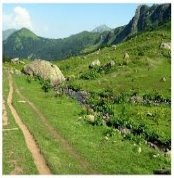
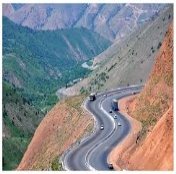
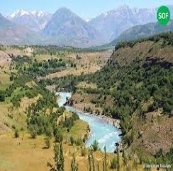
- «The main timber that is laid across the building beams. It is longer and thicker than the beams, mostly round in cross section. It is made of tall and mature trees
(poplar, pine, elm, conifers, etc.). Which term do you think this definition refers to in the text?
A. Zov
B. Tosin
C. Xari
(Answer: C)
- Based on the information in the text, determine whether these statements are true or false.
|
You can drink river water |
True/False |
|
The rose does not emit carbon dioxide |
True/False |
|
In addition to the spruce trees, there were many other trees and shrubs |
True/False |
|
The poachers took the logs during the day |
True/False |
(Answer: false, false, true, false)
10. Why do you think we compare nature to mother?
Try to create your own ideas in the form of creative text.
Conclusion
In conclusion, the methodological activities in this area help the student to develop skills such as analysis of the information provided, reflection on it, and reaction to the identified information. In preparing the text-related assignments, first of all, it is necessary to identify the places in the text that need the reader's attention, to work on new information related to the various areas given in the text, it is very important to develop assignments that create conditions for them to express their creative ideas.
References:
- D. Yuldasheva. The gradual development of the goal of mother tongue education. Study guide. — Tashkent: National Encyclopedia of Uzbekistan, 2013.
- K.Mavlonova. The need to improve mother tongue education. Prospects for cooperation in the promotion of the Uzbek language around the world. International scientific-practical conference mater. — Tashkent, 2020, October 19–20.
- Assessment of students' reading literacy in international research. A handbook for teachers of mother tongue and literature, methodologists and specialists in the field. –Tashkent: Sharq, 2019.







